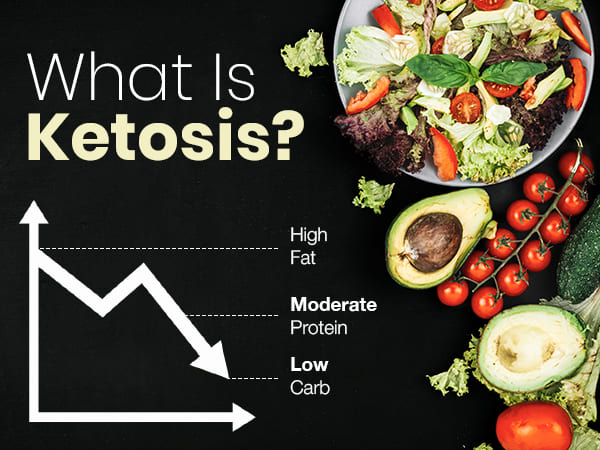Benefits of Ketosis
Welcome to our comprehensive guide on the benefits of ketosis. In this article, we will explore the numerous advantages of adopting a ketogenic diet and achieving a state of ketosis. Ketosis is a metabolic process in which the body uses fat as its primary source of fuel instead of carbohydrates. By understanding the benefits of ketosis, you can make informed decisions about incorporating this dietary approach into your lifestyle.
Weight Loss
Ketosis is highly regarded for its effectiveness in weight loss. When the body enters ketosis, it becomes incredibly efficient at burning fat for energy. By restricting carbohydrate intake, the body is forced to tap into its fat stores, leading to significant weight loss. Additionally, the ketogenic diet helps regulate hunger hormones, leading to reduced appetite and increased satiety, making it easier to adhere to a calorie deficit.
Improved Mental Clarity
One of the lesser-known benefits of ketosis is its positive impact on mental clarity. When in a state of ketosis, the brain utilizes ketones as an alternative energy source, providing a stable and consistent supply of fuel. This can result in improved focus, concentration, and mental performance. Many individuals report experiencing enhanced cognitive abilities and increased productivity while following a ketogenic diet.
Increased Energy Levels
By transitioning to a ketogenic diet and achieving ketosis, you can experience a significant boost in energy levels. Unlike the energy fluctuations often associated with consuming carbohydrates, ketones provide a steady stream of energy throughout the day. This sustained energy can lead to increased endurance, improved athletic performance, and overall higher levels of vitality.
Reduced Inflammation
Inflammation is a common underlying factor in various chronic diseases. Research suggests that ketosis can help reduce inflammation in the body. By limiting carbohydrate intake, the ketogenic diet can lower insulin levels, which in turn reduces inflammation. This can have a positive impact on conditions such as arthritis, metabolic syndrome, and certain autoimmune disorders.
Controlled Blood Sugar Levels
For individuals with diabetes or those at risk of developing it, ketosis can be particularly beneficial. By significantly reducing carbohydrate intake, the ketogenic diet helps regulate blood sugar levels. This can lead to improved insulin sensitivity and better glycemic control. It is important to consult with a healthcare professional before making any dietary changes, especially for individuals with diabetes.
Improved Heart Health
Following a ketogenic diet can also have a positive impact on heart health. By reducing carbohydrate intake, the diet can help lower triglyceride levels, increase HDL (good) cholesterol, and reduce LDL (bad) cholesterol. These changes can contribute to a healthier lipid profile and a reduced risk of cardiovascular diseases.
Enhanced Physical Performance
Achieving ketosis can improve physical performance, especially in endurance activities. By utilizing fat as the primary fuel source, the body can tap into its abundant fat stores, providing a seemingly limitless source of energy. This can result in improved endurance, reduced fatigue, and enhanced recovery.

In summary, the benefits of ketosis are numerous and diverse. From weight loss and improved mental clarity to reduced inflammation and enhanced physical performance, adopting a ketogenic diet can have a positive impact on various aspects of your health. It is important to note that the ketogenic diet may not be suitable for everyone, and it is always advisable to consult with a healthcare professional before making any significant dietary changes. However, for those who can safely follow a ketogenic diet, the potential benefits are substantial.
Frequently Asked Questions about the Benefits of Ketosis
1. What is ketosis?
Ketosis is a metabolic state in which your body primarily uses ketones, produced from fat, as its main source of energy instead of glucose.
2. How does ketosis help with weight loss?
Ketosis promotes weight loss by increasing fat-burning and reducing appetite, making it easier to consume fewer calories without feeling hungry.
3. Can ketosis improve mental clarity?
Yes, many people report improved mental clarity and focus while in ketosis, as ketones provide a steady source of energy to the brain.
4. Is ketosis beneficial for athletes?
Ketosis can be beneficial for certain athletes, especially those involved in endurance sports, as it enhances fat utilization and spares glycogen stores.
5. Does ketosis have any potential anti-inflammatory effects?
Yes, ketosis has been shown to have anti-inflammatory effects, which may help reduce the risk of chronic diseases associated with inflammation.
6. Can ketosis improve insulin sensitivity?
Research suggests that ketosis can improve insulin sensitivity, potentially benefiting individuals with insulin resistance or type 2 diabetes.
7. Are there any benefits of ketosis for epilepsy?
Yes, a ketogenic diet has been used as a therapeutic approach to reduce seizures in individuals with epilepsy, especially in children.
8. Can ketosis help in managing polycystic ovary syndrome (PCOS)?
Ketosis may have potential benefits in managing PCOS by improving hormone balance, insulin resistance, and weight loss.
9. Is ketosis safe for long-term use?
While ketosis is generally safe for most people, it’s important to consult with a healthcare professional before adopting a long-term ketogenic diet, especially if you have any underlying medical conditions.
10. What are some common side effects of ketosis?
Common side effects of ketosis include bad breath, increased thirst, frequent urination, constipation, and potential nutrient deficiencies if the diet is not properly planned.




